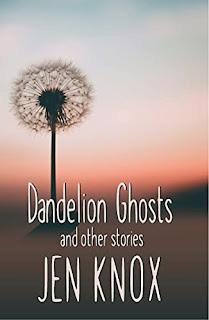The variability of Feedback, however, is great. So, I thought I'd examine it from both sides.
All that said, if I'm reading something in a workshop or for a friend, I don't have a problem sticking with the work, and being completely honest. In fact, I find it rather fun to tease out what I don't like; conversely, it's educational to pinpoint exactly what it is I do like. This sometimes means facing a defensive writer (friend or otherwise), let me tell you, but I find that any serious writer will keep an open mind to my genuine response.
As such, I've learned to hold myself to certain standards when reviewing a piece of writing. Here are my few rules:
Rule One - Honesty. Some writers are overly complimentary when they provide feedback. Perhaps they want to spare another writer's feelings, or maybe they want the writer to like them, and so they only focus on the positive. No matter how nice I would like to be, I refuse to give unwarranted praise. I ask myself, do I really want those who read my work to stroke my ego? Or, do I want them to be honest?
Well, since I always value honesty, it's only fair that I do the same for others. Further, I feel as though I learn a lot about my own work each time I dissect another's story and tell him/her exactly what I liked/didn't like about it.
Rule Two - Offer the writer an analysis of his/her work, not an emotional response. I've learned that if I have an emotional response to the content, the writer might just be doing something right. So now I ask myself, what is it, specifically, that is unlikable about the work? Is it just that I disagree with the writer's views? And if so, fine, but own up to it, then get down to business and offer a critique of the writing/storytelling as well.
Getting Feedback: Um, this is harder for me. I'm a giver... No, but really, I have an extra rule for this category, but as you'll see, my personal standards when it comes to being reviewed are damn-similar.
Rule One - Be open-minded. As genius as I'd like to think I am, I am sure that I will always have room to grow. So even if I don't agree with a reader's critique, I think about what was said before immediately agreeing or disagreeing with it.
Rule Two - Maintain Artistic Integrity. This one used to be incredibly tough for me because I lacked confidence, but it's one I've finally learned to adhere to. I allow myself to disagree with advice and opinion. If a reader suggests that I erase a few lines, for instance, and I think those lines are necessary to the story, I can now keep them. So long as I can justify this decision for artistic reasons.
Rule Three - Be tough. Sometimes we artistic folks can get love-blind to our own work. We can write a thing and just know that it's ready for The New Yorker
From what I hear, these thoughts are normal, but they pass if we keep at it, and we continue to learn. A writer has to be tough, yes, but must always keep an open mind. It's a true balancing act.
Your thoughts?
